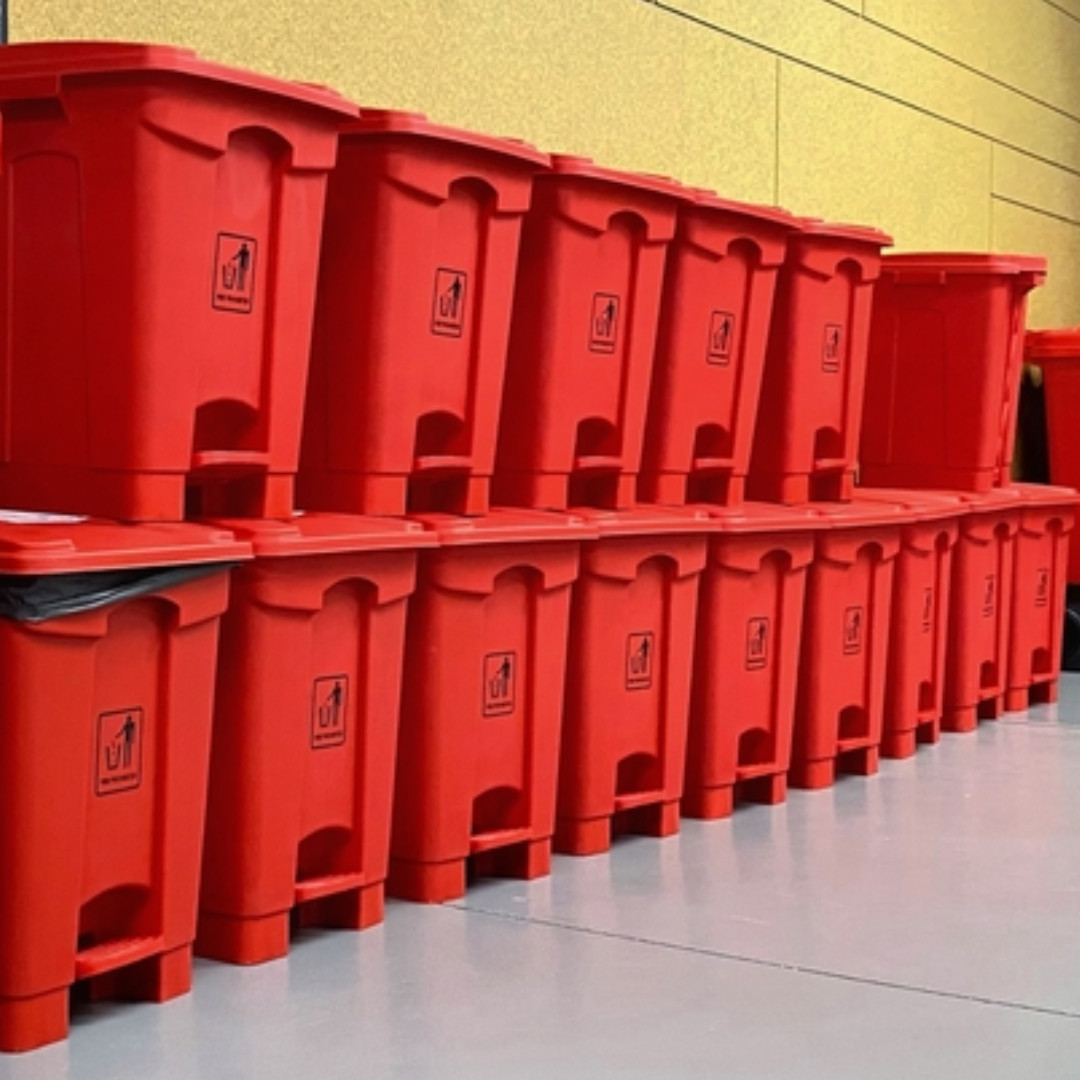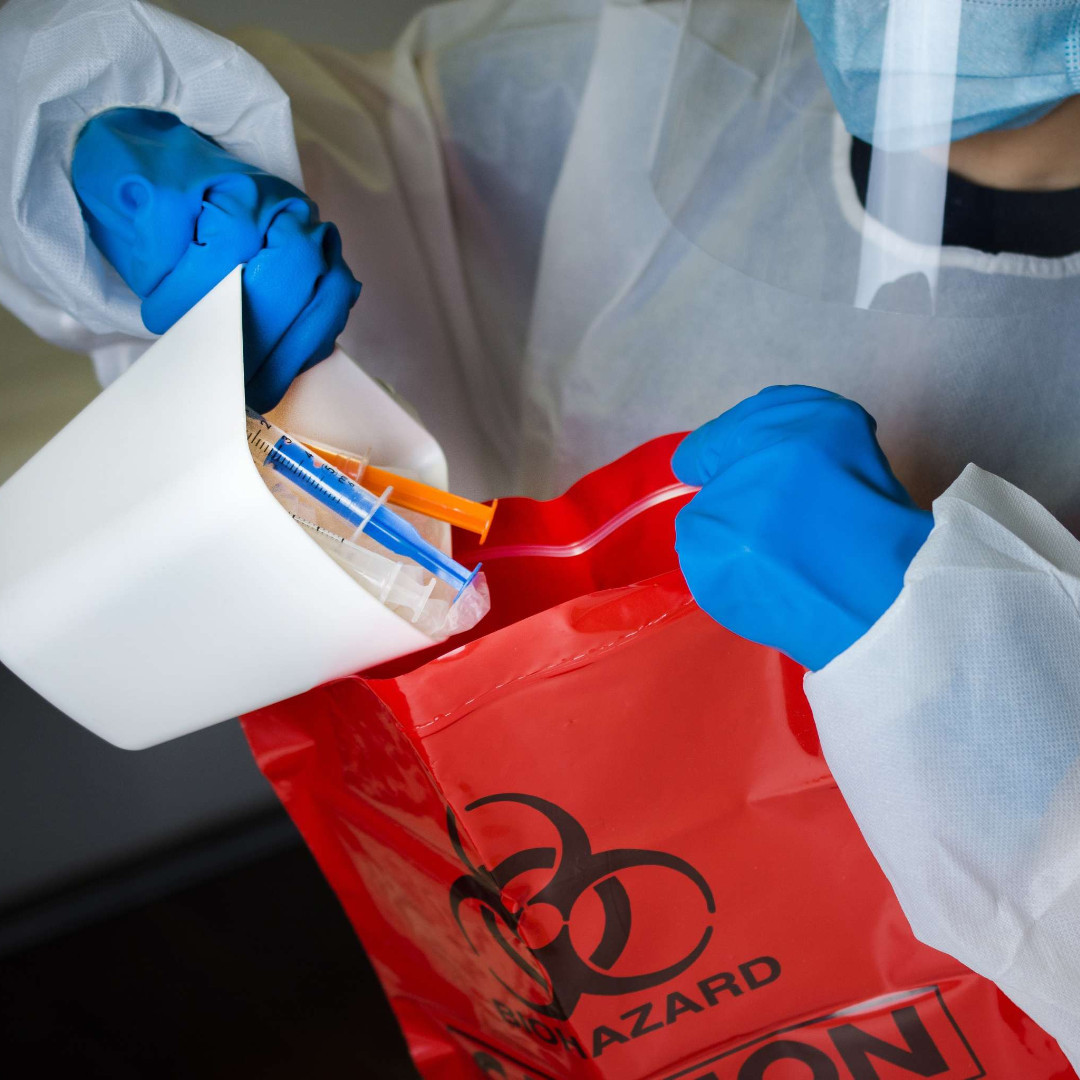State inspectors found bloody bandages, leaking infectious waste and other infectious garbage at unapproved South Carolina landfills and transfer stations last year, sparking concerns about contamination and prompting a series of fines against four hospitals.
Fines totaling $143,400 were issued against three Charleston-area hospitals and one in Conway for the medical waste violations, according to records released this week. Two of the hospitals, Roper and Bon Secours St. Francis in Charleston, generated $104,000 of the total fines. The two hospitals are part of the Bon Secours system. The other facilities fined were the Ralph Johnson Veterans hospital in Charleston and the Conway Medical Center near Myrtle Beach.
Collectively, the hospitals racked up more than 40 violations that the S.C. Department of Health and Environmental Control cited after inspections in 2021. While some violations varied, all hospitals were cited for failing to properly package infectious waste in containers that could prevent leaks to the environment, records show. All also ran afoul of DHEC for not treating infectious waste, as required, before shipping it off for disposal, enforcement documents show.
The three Charleston hospitals failed to manage infectious waste “to prevent exposure to the public or release to the environment,’’ according to enforcement summary sheets released by DHEC. During their inspections in 2021, inspectors found medical waste in area solid waste landfills and transfer stations that are approved for handling household garbage but not the infectious trash that was shipped there.
The Importance of a Registered Transporter
Landfill and transfer station officials contacted DHEC after finding the medical waste. It was unclear why the problems occurred, but the enforcement actions said that the Bon Secours medical centers offered infectious waste to a “non-registered transporter.’’ Among other things cited in enforcement orders, inspectors found:
Bloody gauze, exam gloves and a catheter bag at a Charleston-area transfer station, a facility that ships household garbage to standard landfills. Bags that contained medical waste were open and had spilled onto the ground. The material came from Roper Hospital.
Blood-filled syringes, bags tainted by human blood, soiled intubation equipment and dressings “supersaturated’’ with what appeared to be blood and body fluids. The material was found at Charleston County’s Bees Ferry landfill. The waste came from Roper Hospital.
Bags of blood, as well as needles, glass medicine vials and a pump device that appeared to contain blood at Dorchester County’s Oak Ridge landfill. Spilled waste and open bags of medical waste also were found at the landfill. The waste came from Bon Secours St. Francis.
A container of suctioned blood, bloody intravenous tubing, bloody surgical drapes and gauze at a transfer station in the Charleston area. The medical waste came from the VA hospital in Charleston.
Tubing containing blood, as well as clear plastic bags filled with both infectious and solid waste at the Horry County landfill near Conway. The waste came from Conway Medical Center.
What is Infectious Waste
Infectious, or medical, waste is a by-product of hospitals and medical facilities. It must be safely stored to protect the environment and public health, DHEC says. The material can include syringes, scalpels, culture dishes that have been exposed to disease, blood, parts removed from the human body and “any other waste designated as infectious,’’ according to DHEC’s website.
Medical waste often is dealt with by incinerating the material, disinfecting it and/or shipping it to certified treatment sites. Infectious waste must be treated before it is disposed of, the department said, noting that the medical refuse can be dangerous.
“Infectious waste, in general, is waste that poses an environmental danger due to its biological risk,’’ DHEC said in an email Wednesday night. “The possible risks for human injury or illness, or environmental impacts, due to improper handling depends upon the specific type of infectious waste involved and how it was mishandled.’’ DHEC says the state has more than 9,000 generators of infectious waste.
About 30 entities are registered to transport the material, while two are registered to treat infectious waste, the agency says. The two treatment sites are in West Columbia and Greenville, the agency said. The investigation, sparked by landfill and transfer station operators, is not over and other medical facilities could be liable for improper disposal of medical waste at landfills.
In an email, DHEC confirmed that “similar investigations are occurring.’’
Infectious Waste History
DHEC’s enforcement action against the hospitals follows decades of issues involving the proper disposal of medical waste in the state. In the mid 1990s, questions about the safe transport of medical waste became a concern after state officials discovered a warehouse full of decaying infectious waste on Shop Road in Columbia, awaiting transport to a disposal site in Hampton County, The State reported.
The incinerator in Hampton County later ran into troubles, catching fire in 1997, and eventually closing about 20 years ago after a public outcry. The incinerator had been accepting infectious waste from across the country.
More recently, concerns have surfaced in the Lowcountry about the proper disposal of medical waste at landfills, the Charleston newspaper, The Post and Courier, reported.
According to DHEC enforcement records, Bon Secours St. Francis was hit with the largest fine at $54,000; Roper was fined $50,000; and Conway Medical Center was fined $14,400. The VA facility was hit with a $25,000 fine.
The enforcement orders against Roper and Bon Secours St. Francis were not the first by DHEC. Records show the two hospitals both had enforcement cases made against them in 2020 for some of the same problems.
Andy Lyons, a spokesman for the Roper and St. Francis hospitals run by Bon Secours, released a statement saying the problems had been taken care of.
“We were concerned about the state’s findings and took immediate action to protect our staff, patients and the environment,’’ the statement said. “Since the state’s last visit more than six months ago, we’ve gone to great lengths and expense to make improvements to our handling of infectious waste. We now exceed state requirements and are continuing to educate our team on proper disposal procedures. The mistake was unfortunate, but it was not intentionally made by Roper-St. Francis Healthcare staff. We welcome any opportunity to enhance our efforts to keep our community safe.’’
A spokeswoman for the Veterans Administration hospital in Charleston said the violations at her facility centered on one primary issue and the VA had worked to address the problems. Waste picked up from the VA hospital had been placed in the wrong container, she said.
“I don’t know who was to blame, if it was someone from our center, or the gentlemen who picked up waste who accidentally labeled and put it in the wrong container,’’ she said. “That was the one instance. We have definitely put measures in place to ensure nothing like happens again. It is checked, double-checked and triple checked before anything leaves the facility anymore.’’
This post, Bloody infectious waste from SC hospitals flowed illegally to landfills, agency says, was shared by The State on May 7, 2022.











